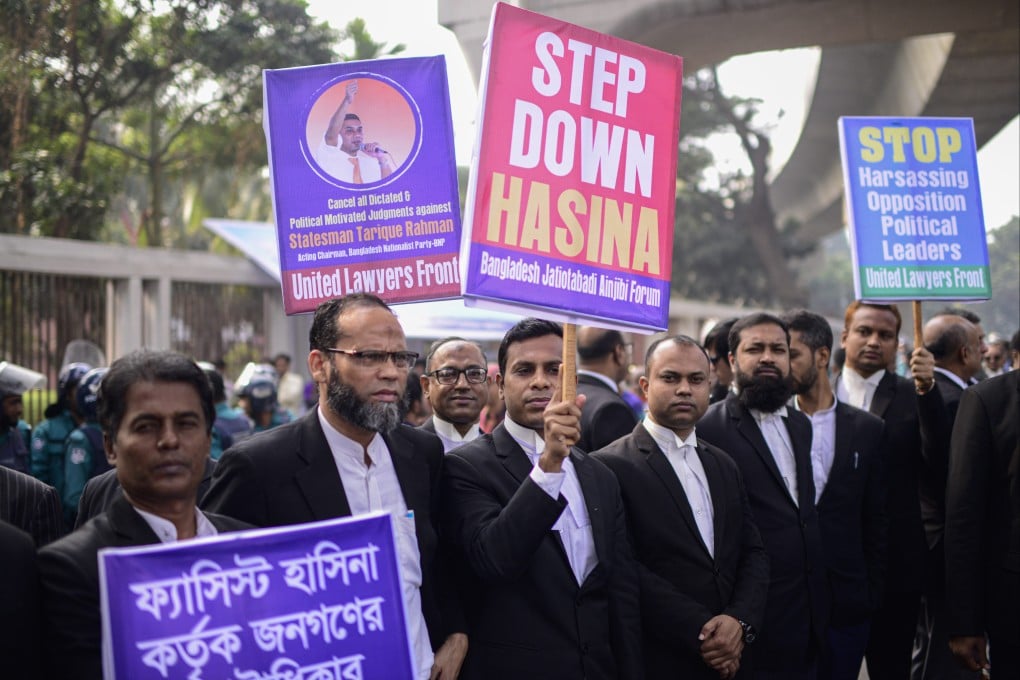Advertisement
India anxious for status quo in Bangladesh elections as China holds ‘advantageous position’ regardless of outcome
- Bangladesh is seen as India’s only reliable strategic partner in South Asia and as such, New Delhi wants PM Sheikh Hasina to retain power
- China is unlikely to be affected by any electoral outcome in Bangladesh as it seeks to expand its sway in Dhaka, an analyst says
Reading Time:4 minutes
Why you can trust SCMP
5

As Bangladesh gears up for crucial national elections in January, India is closely monitoring its neighbour’s political developments amid sharply rising anti-Indian sentiments in the Muslim-majority nation.
Advertisement
New Delhi desperately wants Bangladeshi Prime Minister Sheikh Hasina to win her fourth consecutive term, while China is steadily increasing its influence in Dhaka through trade links.
In the neighbourhood, Bangladesh remains the only nation in South Asia that could be called a reliable strategic partner for New Delhi, as all other countries have gradually slipped out of India’s sphere of influence over the years.
The ruling Awami League, led by Hasina, has been in power since 2009 and fending off increasing accusations of alleged rigged elections and the country backsliding into authoritarian rule.
General elections for the 300-member assembly in the country of 170 million people will take place on January 7. The main challenger, Bangladesh Nationalist Party (BNP), led by former Prime Minister Khaleda Zia, has announced it is boycotting the polls.
Advertisement

Advertisement